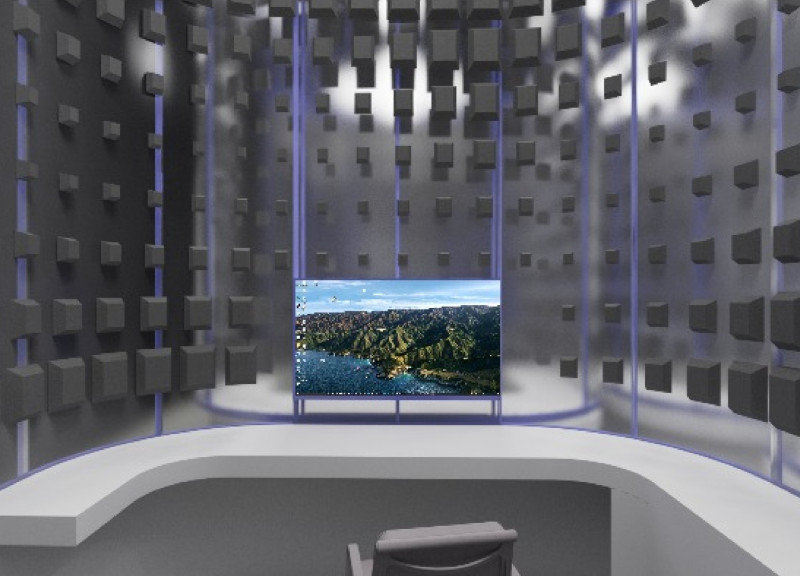5 key facts about this project
The Sonus Pod offers a modern solution for adapting to new ways of working, situated within an open office environment. It combines collaborative spaces with individual work areas, catering to the needs of both in-person and remote employees. This design emphasizes the importance of effective communication in a hybrid work model while providing a functional space that enhances productivity.
Acoustic Performance
A key focus of the Sonus Pod is its acoustic performance. In open office settings, noise can be a significant distraction. The pod's design includes features that minimize sound disruptions, creating a quiet zone for focused work. This is particularly crucial during virtual meetings, where privacy and clear communication are essential. By addressing these acoustic challenges, the Sonus Pod ensures a more conducive working atmosphere.
Configurability
The Sonus Pod stands out for its configurability, allowing users to adjust the space to fit their needs. With vertical isolators and horizontal moving panels, individuals can modify the layout based on their specific tasks or preferences. This adaptability makes the pod a practical choice for diverse work situations, as it responds to varying requirements throughout the day.
Technological Integration
An important aspect of the Sonus Pod is its integration of technology. The design incorporates an audiovisual system that supports communication between users, both in-person and remote. This thoughtful inclusion makes it easier to switch between different forms of interaction, enhancing overall functionality. The technology works smoothly within the pod, resulting in a streamlined user experience.
The Sonus Pod is built with a polycarbonate shell, which provides a sturdy yet lightweight structure. This material helps improve sound insulation while allowing for visual clarity. Inside, sound-dampening foam panels are strategically placed to further enhance the acoustic environment. Together, these design elements create an inviting space for collaboration and focused work.






















































